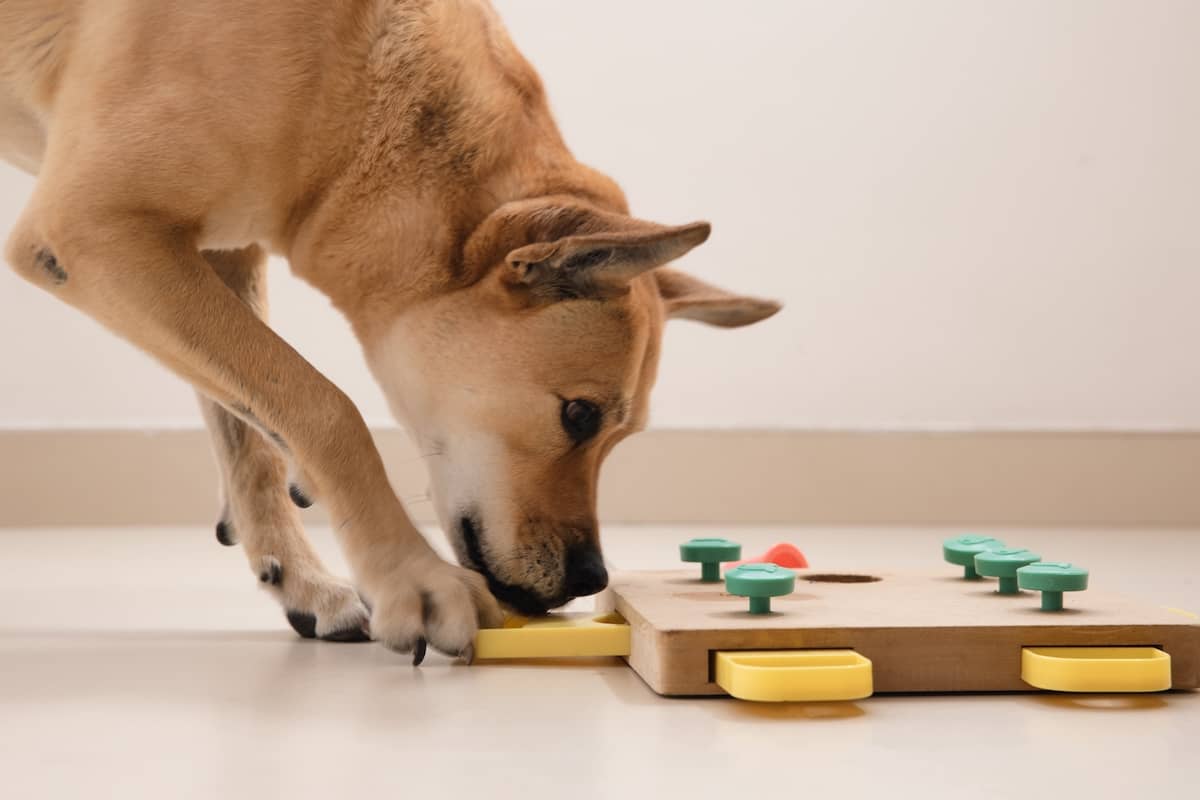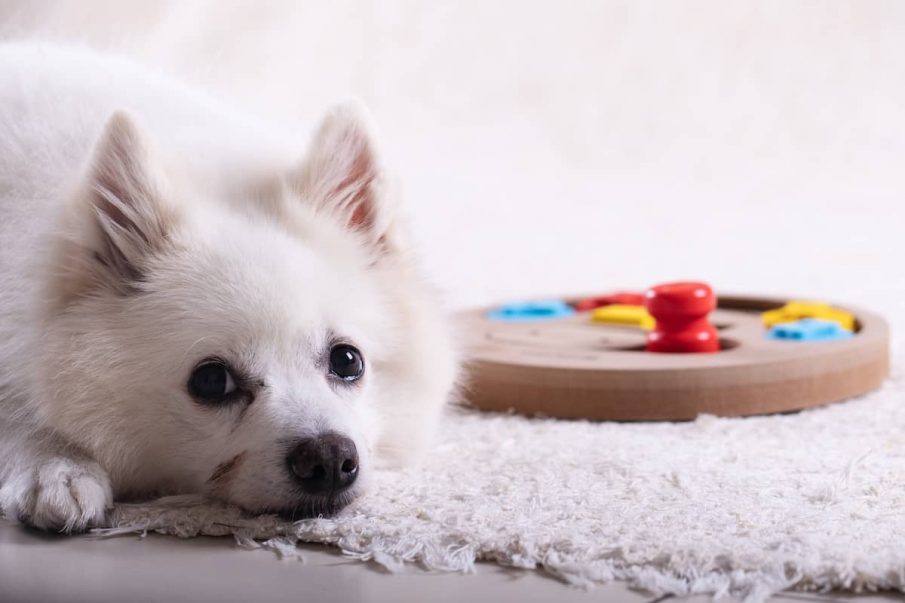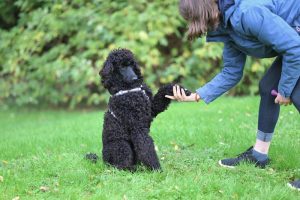If you are a dog owner, you probably know how much your furry friend loves to play with toys. But did you know that some toys are more than just fun? They can also benefit your dog’s brain health and behaviour.
In this blog post, we will explore the benefits of dog puzzle toys, which are designed to challenge your dog’s intelligence and problem-solving skills. We will also give you some tips on how to choose the right dog puzzle toy for your dog’s personality and skill level, and how to incorporate them into your dog’s daily routine.
Learn why dog puzzle toys are a great way to keep your dog happy, healthy, and mentally stimulated.
Why Dog Puzzle Toys Are More Than Just Fun
Dogs are intelligent creatures that thrive on mental stimulation and physical activity. While traditional toys like balls and chew bones can provide entertainment, puzzle toys offer a unique challenge that engages your dog’s natural problem-solving abilities.
These interactive toys are designed to tap into your furry friend’s innate curiosity and problem-solving skills, making playtime more than just a fun pastime. Dog puzzle toy are a valuable tool for promoting cognitive development, reducing boredom, and preventing behavioural issues.
How Dog Puzzle Toys Stimulate the Brain and Improve Cognitive Function
At their core, dog puzzle toys are designed to challenge your dog’s mind. These toys require your pup to think, strategize, and manipulate the toy to retrieve treats or access hidden compartments. This mental exercise stimulates various cognitive processes, including problem-solving, memory, and spatial awareness.
When your dog engages with a puzzle toy, their brain is actively working to understand the task at hand and devise a solution. This mental workout strengthens neural pathways and promotes the growth of new connections in the brain, enhancing cognitive function and overall mental acuity.
Additionally, puzzle toys can help prevent cognitive decline in older dogs by keeping their minds active and engaged. Just like humans, dogs can experience age-related cognitive changes, but regular mental stimulation through puzzle toys can help mitigate these effects and maintain cognitive sharpness.

How Dog Puzzle Toys Reduce Boredom and Prevent Behavioural Problems
Dogs are naturally curious and energetic creatures, and when their physical and mental needs are not met, boredom can set in. Boredom can lead to a variety of undesirable behaviours, such as excessive barking, chewing, digging, or even destructive tendencies.
Puzzle toys provide a great outlet for your dog’s energy and mental engagement. By presenting a challenge that requires concentration and problem-solving skills, these toys occupy your dog’s time and attention, reducing the likelihood of boredom-induced behavioural issues.
Moreover, puzzle toys can be particularly beneficial for dogs that are left alone for extended periods. By providing a mentally stimulating activity, these toys can help alleviate separation anxiety and prevent destructive behaviours caused by boredom and loneliness.
How to Choose the Right Dog Puzzle Toy for Your Dog’s Personality and Skill Level
Not all puzzle toys are created equal, and selecting the right one for your dog’s personality and skill level is crucial for ensuring a positive and engaging experience. Here are some factors to consider when choosing a dog puzzle toy:
- Difficulty Level: Start with toys that match your dog’s current skill level. Toys that are too complex can frustrate your dog, while those that are too easy may not provide sufficient mental stimulation. As your dog becomes more adept at solving puzzles, you can gradually increase the difficulty level.
- Breed and Size: Different breeds and sizes of dogs may have varying preferences and capabilities when it comes to puzzle toys. Consider your dog’s physical abilities and breed characteristics when selecting a toy. For example, smaller breeds may do better with compact toys, while larger breeds may prefer toys that require more physical manipulation.
- Food Motivation: Some puzzle toys involve the use of treats or your dog’s regular food as a reward for solving the puzzle. If your dog is highly food-motivated, these types of toys can be incredibly engaging. However, if your dog is less interested in food rewards, you may want to consider toys that rely on other types of rewards, such as squeakers or dispensing balls.
- Interactive vs. Solitary Play: Decide whether you want a toy that encourages interactive play with you or a toy that your dog can work on independently. Interactive toys can be great for bonding and training, while solitary toys can be useful for keeping your dog occupied when you’re not around.
How to Incorporate Dog Puzzle Toys into Your Dog’s Daily Routine
Incorporating dog puzzle toys into your furry friend’s daily routine can provide numerous benefits for their physical, mental, and emotional well-being. Here are some tips for seamlessly integrating these toys into your dog’s life:
- Start Slowly: Introduce puzzle toys gradually, allowing your dog to become familiar with them one at a time. This will prevent overwhelming your pup and ensure a positive experience.
- Make it a Routine: Set aside dedicated playtime for puzzle toys, either as part of your dog’s daily exercise regimen or as a separate activity. Consistency will help your dog associate puzzle time with mental stimulation and fun.
- Rotate Toys: To prevent boredom and maintain your dog’s interest, rotate the puzzle toys you offer. This will keep the challenge fresh and exciting.
- Use as a Reward: Puzzle toys can be used as a reward for good behaviour or as a way to keep your dog occupied during downtime or when you’re away from home.
- Supervise and Encourage: While some puzzle toys are designed for independent play, it’s important to supervise your dog initially and offer encouragement when they make progress. This positive reinforcement will help build their confidence and motivation.
By incorporating dog puzzle toys into your furry companion’s routine, you’ll not only provide them with a fun and engaging activity but also contribute to their overall cognitive development, emotional well-being, and behavioural health.
Conclusion
Dog puzzle toys are not only fun but also beneficial for your dog’s brain health and behaviour. They can help your dog stay mentally stimulated, reduce boredom, and prevent behavioural problems. By choosing the right dog puzzle toy for your dog’s personality and skill level, you can provide your dog with a rewarding and enjoyable activity.
You can also incorporate dog puzzle toys into your dog’s daily routine, such as before meals, during training sessions, or when you leave your dog alone. Dog puzzle toys are a great way to show your dog how much you love and care for them. Try them out and see the difference they can make for your dog’s well-being.






